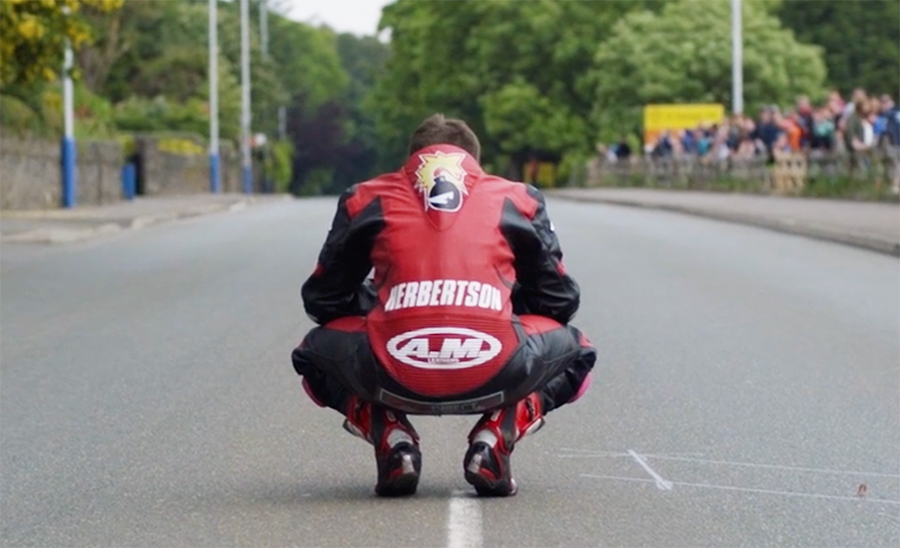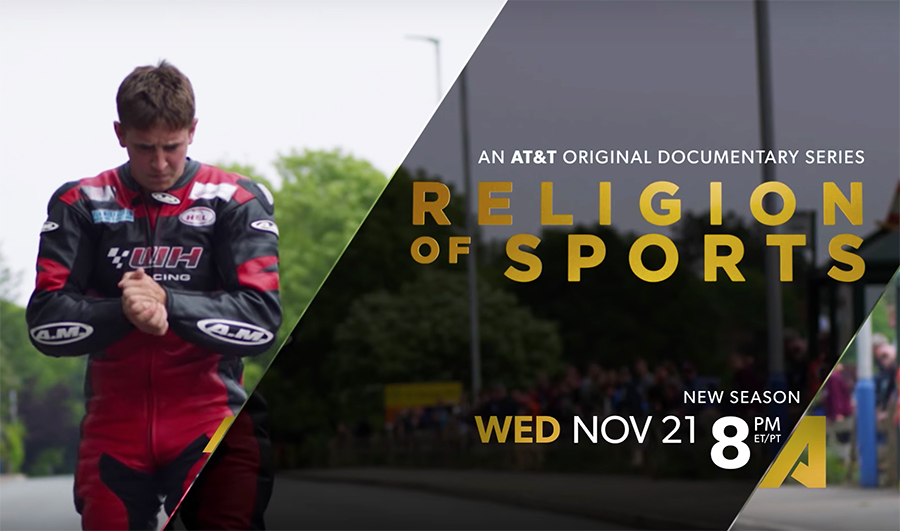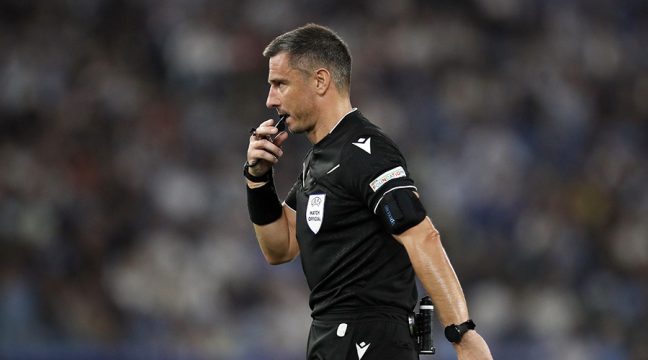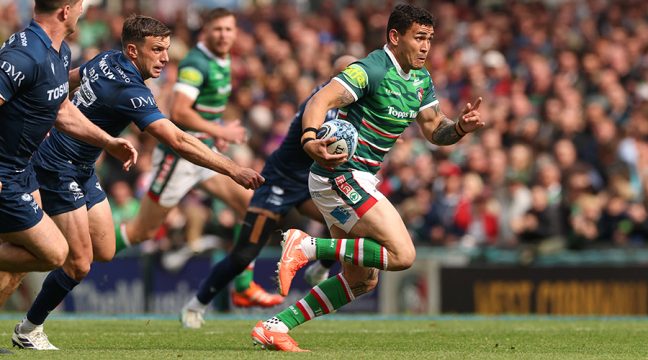AT&T’s Audience Network’s original documentary series,
Religion of Sports
is back for Season 3 — premiering November 21 — 8 p.m. ET/PT
The series highlights the cultural and historical experiences in sports across the globe
from famous rivalries to unforgettable hardships. Watch the trailer here or click below.
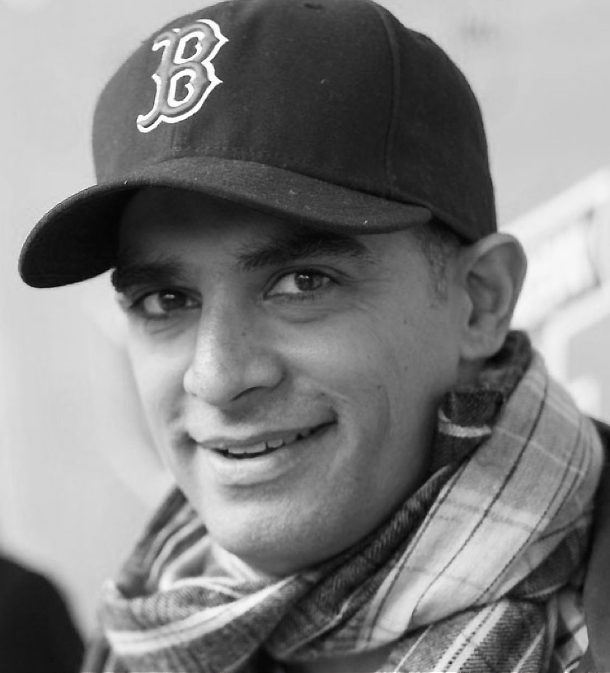 <span style="color: #999999;">The Series, Founded and Co-Produced by Patriots QB Tom Brady, Hall of Fame Defensive End Michael Strahan, and Gotham Chopra, also the Chief Creative Officer, pictured right, starts the first episode of Season 3 with the incredible story of the Isle of Man TT.
<span style="color: #999999;">The Series, Founded and Co-Produced by Patriots QB Tom Brady, Hall of Fame Defensive End Michael Strahan, and Gotham Chopra, also the Chief Creative Officer, pictured right, starts the first episode of Season 3 with the incredible story of the Isle of Man TT.
Located on a small island between Ireland and North England, the story follows the most dangerous motorcycle race in the world, featuring riders who navigate old, windy roads of a small English village at speeds close to 200 mph.
We caught up with Gotham yesterday to learn why the intersection and attachment of sport as religion is difficult to miss, and what can we expect in Season 3.
What’s great about Season 3? We have dynamic film makers who are literally traveling all over the world. The DNA of the Series is understanding how sports provides meaning and purpose to athletes. One episode takes place in Iceland — a small nation — centered around the athletes who did not make it to the world cup and what soccer means to one guy who was left behind. In another, we traveled down to the border between Mexico and Texas where two high school football teams on opposite sides of the line bring communities together.
The intention is too create a global series that is dynamic, colorful, and in some cases emotional, and tells the stories of Why Sports Matters.
There is an immediacy in the storytelling. How do you scout the people and the events that you cover? Fortunately, we get proposals from film makers and from people who send us stories. We’ve built a solid archive of stories that are out there. One of the great things about the show is that it is at the community level inspiring stories in the world of sports. And, yes, there is an immediacy to it. We want stories that we can follow not stories that are archival footage. These are stories where we can get into communities, are around an event that is happening, and really see how it is effecting people.
There are many similarities in the words fans use and that you find in organized religion — devoted, ritual, commitment. Why do you think that the characters you cover in the Series have that level of connection to sports as a Religion in their lives? To me it’s not a metaphor. It is a living, breathing faith. We go on pilgrimages where stadiums are cathedrals. We become part of a community or congregation. We believe in rituals. That’s what religion is. And when you live in a community and you are part of something bigger than yourself, it becomes a part of your DNA. One of the great things about the Series is that there is no place on the planet that you can go where people are not somehow engaged in sports. And sometimes that’s where the biggest rivalries are in an historical sense. And it’s huge. And when you go into small towns, sports is just as powerful. That’s what religion is.
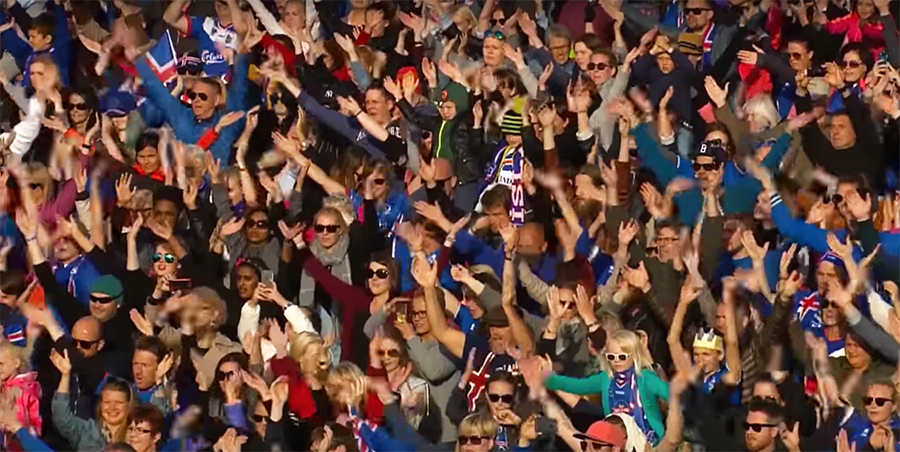
Millions of people around the world are pulling away from organized religion but sports fandom is growing. Do you think it’s the entertainment factor or more the religious experience? The more appropriate title for the Series may have been the Spirituality of Sports. Sports provides a spiritual experience that is visceral as an athlete and as a fan. You don’t have to rationalize or believe in it. You just have to participate, and that’s part of what it is. I think what we are seeing in the world is the reason why institutional religion is declining in popularity in the last few decades.
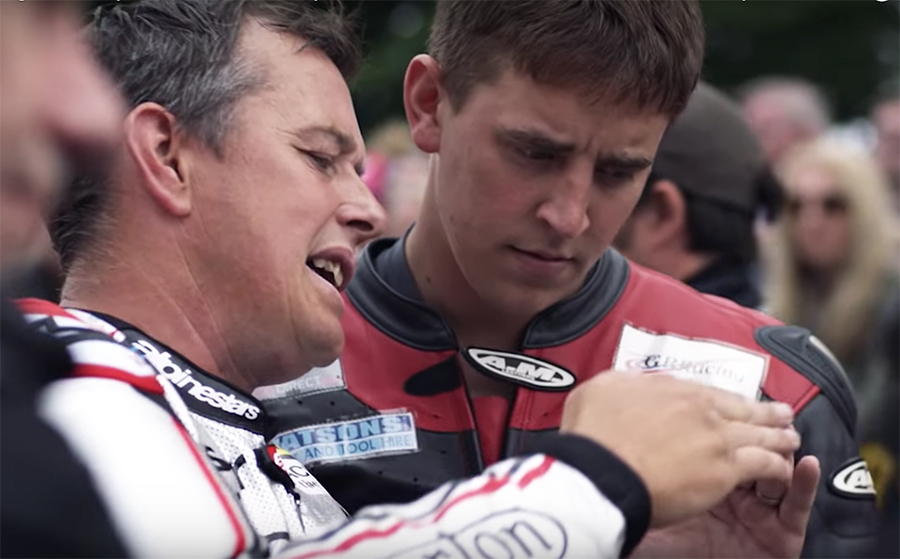 In the Series, the characters tell the audience in their own words what their relationship to their sport means, and it’s really powerful to listen to. Are the characters doing it to accomplish the goal of knowing they are one of a very few who dare to dream and to achieve the dream, or do you think it is to have the daily process that is personal and only theirs (similar to prayer). I think different athletes (and fans) are motivated by different things. For some, there is definitely a discipline and ritual that comes with sports. The rhythm and practice is analogous to prayer in institutional religions, and I think lends those athletes a sense of consistency that they crave. For others, I think there is a transcendent quality to performance that they crave. Sports are mythic — they’re about human potential and pushing your physical and mental self to extraordinary states. I think there’s something addictive to that. Once you’ve tasted that experience you want more of it.
In the Series, the characters tell the audience in their own words what their relationship to their sport means, and it’s really powerful to listen to. Are the characters doing it to accomplish the goal of knowing they are one of a very few who dare to dream and to achieve the dream, or do you think it is to have the daily process that is personal and only theirs (similar to prayer). I think different athletes (and fans) are motivated by different things. For some, there is definitely a discipline and ritual that comes with sports. The rhythm and practice is analogous to prayer in institutional religions, and I think lends those athletes a sense of consistency that they crave. For others, I think there is a transcendent quality to performance that they crave. Sports are mythic — they’re about human potential and pushing your physical and mental self to extraordinary states. I think there’s something addictive to that. Once you’ve tasted that experience you want more of it.
It could be said that sports has as many of the same effects on spectators as religion. Would you agree?
Yes, that’s the premise of our show and our company. Sports matter. For many athletes and most fans, sports provide deep meaning and purpose. As a fan, we become a part of something greater than ourselves when we get attached to a team. We go on pilgrimages to sacred sites (arenas) where mythologies have played out — curses and miracles. Not only do I believe sports is a religion, I think it’s better than institutional faiths. Those require blind faith and for followers to buy into didactic dogma whereas sports requires presence. Show up and occasionally you get to witness a real life miracle. I was at the Super Bowl when the Patriots came back from being down 28-3 to the Atlanta Falcons. I didn’t have to believe in it, I just had to watch.
As sports documentaries go, the films are beautifully choreographed. Is it purposeful to engage the viewers emotions? Sports lend themselves to great cinema. Their physicality can be beautiful to watch, and I think it’s important to all of our filmmakers and storytellers to capture that aspect. I think in many cases, the environment in which a lot of these stories take place are veritable characters in the narratives. The American South as the backdrop for racing from Season 1, Hamburg for our story last year on a soccer club made up of refugees, the border for our football story this season. To really understand why these sports matter so much, you need to understand the setting in which they take place. And not just intellectually, but emotionally and spiritually. Good cinema captures that.

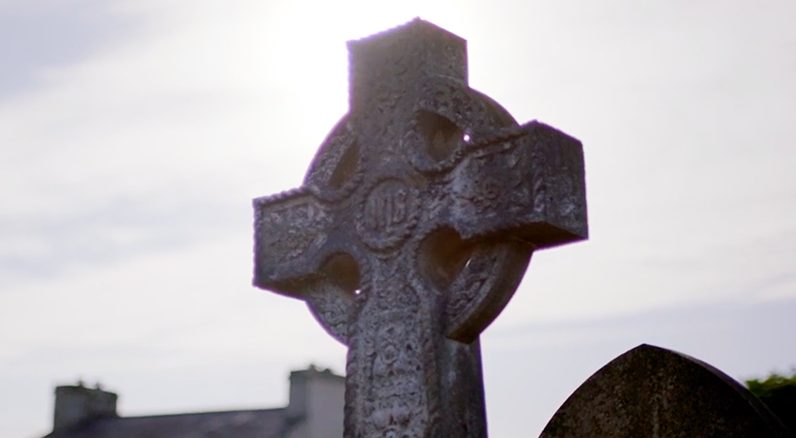 What do you think drives these characters in the Series to live life beyond the physical? I think sports are as much mental and spiritual for athletes as they are physical. They are about human potential and reaching the best versions of ourselves. In that way, sports are transformative and transcendent, and I think that’s something that is a primordial instinct to being human.
What do you think drives these characters in the Series to live life beyond the physical? I think sports are as much mental and spiritual for athletes as they are physical. They are about human potential and reaching the best versions of ourselves. In that way, sports are transformative and transcendent, and I think that’s something that is a primordial instinct to being human.
“… Yes, it’s dangerous. But in the grand scheme, I’m only here for a short time. So you’ve got to enjoy your life whilst you’re here … You’ve got to live it … You’ve got to do it … That’s what it’s all about, isn’t it? — Excerpt from Season 3, Episode 1, Island Of Man TT.
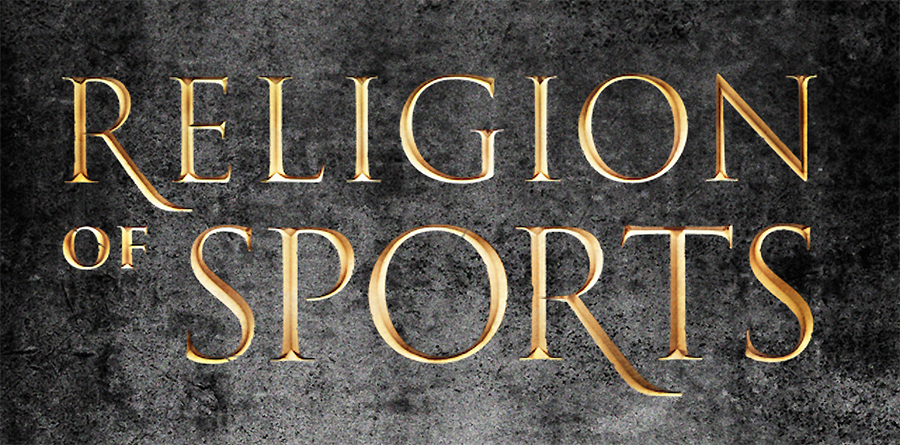
As a Creator, where do you want to take the film series? I love watching it grow and grow. I feel like I was the original evangelist for the Religion of Sports, but over time we’ve built a good group of missionaries that really are helping to spread the good word. I love that many of our stories now originate from filmmakers coming to us with ideas and pitches. I think anyone who has been around sports understands how powerful they can be in communities and the stories that they give rise too. To me, there really is no place on the planet where sports aren’t strong cultural and social forces, so I think we have a lot of potential to keep on growing and that’s a big thrill!
Gotham is involved in other projects produced by Religion of Sports which include Shut Up and Dribble with LeBron James and Showtime. The third and final episode airs this weekend. He also has his Why Sports Matter podcast which airs on the Cadence13 Podcast Network, also produced by Religion of Sports. Listen here

